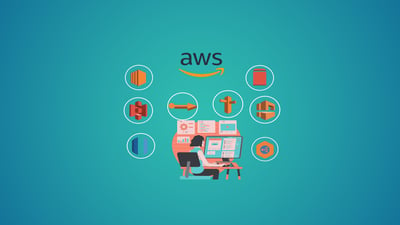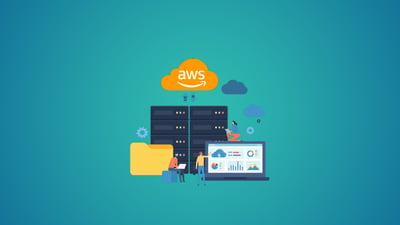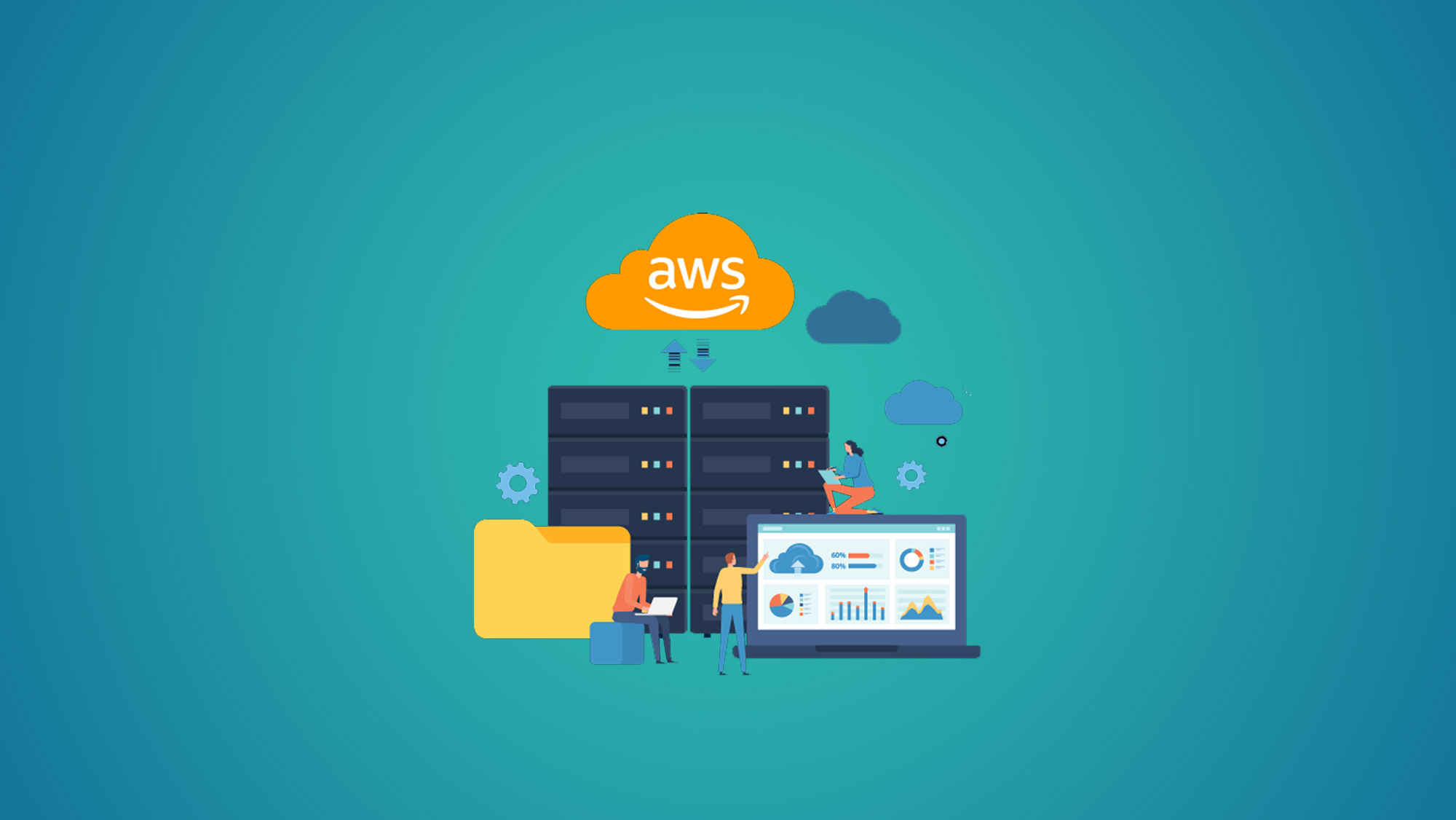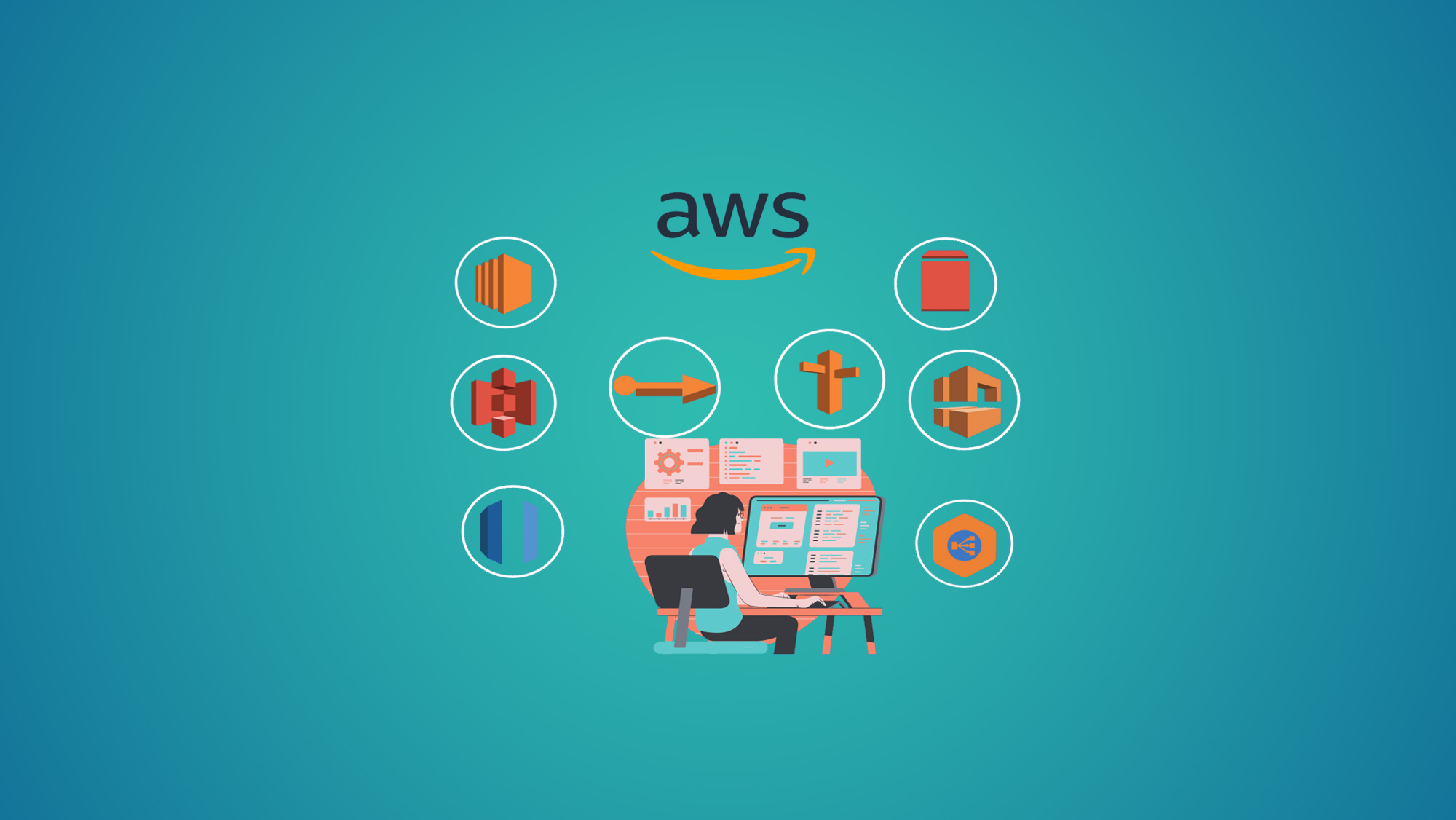Everything You Need To Know About Developing on AWS Training
Introduction:
In today's cloud computing landscape, Amazon Web Services (AWS) has emerged as a leading provider, offering a comprehensive suite of services for organizations to build and deploy applications at scale. Developing on AWS requires specific skills and expertise to effectively leverage the platform's capabilities. This blog aims to provide a comprehensive overview of AWS development training, covering everything you need to know to enhance your proficiency in developing applications on AWS.
What is AWS development training?
Why is AWS development training important?
Who can benefit from AWS development training?
What are the key AWS services for development?
How to choose the right AWS development training program?
What is AWS development training?
AWS development training is a comprehensive program designed to equip individuals with the skills and knowledge required to build and deploy applications on the Amazon Web Services (AWS) platform. Participants learn about AWS services, infrastructure management, security, and best practices, enabling them to develop robust and scalable cloud-based solutions.
Why is AWS development training important?
AWS development training is important for several reasons:
- Maximizing AWS capabilities: AWS offers a vast array of services and features. Training helps developers understand these capabilities and how to leverage them effectively, enabling them to build scalable, resilient, and efficient applications on the AWS platform.
- Enhancing application performance: Training equips developers with the knowledge to optimize their applications for performance on AWS. They learn best practices for resource allocation, load balancing, caching, and other techniques that can significantly improve application responsiveness and user experience.

Read More: Driving Innovation: Enhance Your Skills with AWS Development Training |
- Ensuring security and compliance: AWS provides robust security features, but developers need to understand how to configure and manage them effectively. Training covers security best practices, encryption techniques, access controls, and compliance considerations, helping developers build secure and compliant applications.
- Cost optimization: AWS offers various pricing models, and training helps developers understand how to architect applications and leverage services to minimize costs. They learn strategies for optimizing resource usage, monitoring costs, and implementing cost-effective solutions, ultimately leading to better cost management and savings for organizations.
- Keeping up with evolving technology: AWS constantly introduces new services and updates existing ones. Training ensures developers stay updated with the latest AWS offerings, tools, and best practices, enabling them to leverage new features and advancements in their application development.
- Collaboration and efficiency: AWS development training often includes collaboration tools and methodologies that facilitate teamwork and streamlined development processes. Developers learn how to work together effectively, utilize version control systems, and implement continuous integration/continuous deployment (CI/CD) pipelines, resulting in faster and more efficient development cycles.
- Career advancement: AWS has emerged as the leading cloud provider, and organizations are increasingly adopting AWS for their infrastructure needs. Having AWS development skills and certifications opens up a wide range of career opportunities, as companies actively seek professionals with the expertise to develop and manage applications on the AWS platform.
Who can benefit from AWS development training?
AWS development training can benefit a wide range of individuals and professionals who work with or are interested in leveraging the power of the AWS cloud platform. Some specific groups that can benefit from AWS development training include:
- Software Developers: Developers who want to build scalable, reliable, and efficient applications on AWS can greatly benefit from AWS development training. They learn the essential skills, tools, and best practices required to design, deploy, and manage applications on the AWS platform.
- System Administrators: System administrators responsible for managing infrastructure and deploying applications can enhance their skills through AWS development training. They learn how to provision and configure AWS resources, automate tasks, and optimize infrastructure for maximum performance and cost-efficiency.
- Solution Architects: Solution architects who design cloud-based solutions can expand their knowledge by undergoing AWS development training. They gain a deeper understanding of AWS services, architecture patterns, and best practices, enabling them to design robust and scalable solutions that meet specific business requirements.
- IT Managers: IT managers and leaders responsible for overseeing cloud projects and teams can benefit from AWS development training. They acquire a comprehensive understanding of AWS capabilities, governance strategies, and cost optimization techniques, enabling them to make informed decisions and effectively manage AWS-based projects.
- Data Engineers: Data engineers working with big data and analytics can leverage AWS development training to learn about AWS services like Amazon Redshift, Amazon Athena, and Amazon EMR. They acquire skills to efficiently process, analyze, and visualize large datasets on the AWS platform.
- DevOps Engineers: DevOps engineers looking to implement CI/CD pipelines, automate infrastructure, and manage deployments on AWS can enhance their skills through AWS development training. They learn about tools like AWS CodePipeline, AWS CodeBuild, and AWS CloudFormation to streamline development processes and ensure reliable deployments.
- Cloud Enthusiasts: Individuals with a general interest in cloud computing and AWS can also benefit from AWS development training. It provides a solid foundation of knowledge and skills related to AWS services, architectures, and best practices, allowing them to explore cloud-based projects and career opportunities.
What are the key AWS services for development?
There are several key AWS services that are commonly used in development workflows. These services provide developers with the necessary tools and infrastructure to build, deploy, and manage applications in the cloud. Some of the key AWS services for development include:
- AWS Lambda: AWS Lambda is a serverless compute service that allows developers to run code without provisioning or managing servers. It enables developers to build event-driven applications and microservices, where the code is executed in response to events or API requests.
- Amazon EC2 (Elastic Compute Cloud): Amazon EC2 provides scalable virtual server instances in the cloud. Developers can launch and manage virtual machines, known as instances, to run their applications. EC2 offers a wide range of instance types optimized for various workloads.
- AWS Elastic Beanstalk: AWS Elastic Beanstalk is a fully managed service that simplifies the deployment and management of applications. It supports various programming languages and platforms, allowing developers to easily deploy their applications without worrying about infrastructure management.

Read More: Mastering AWS Development: Unlocking the Power of Cloud Computing |
- AWS CloudFormation: AWS CloudFormation is a service that allows developers to define and provision infrastructure resources using code. It enables infrastructure as code (IaC) by providing templates to automate the creation and management of AWS resources, making it easier to manage complex infrastructures.
- Amazon S3 (Simple Storage Service): Amazon S3 is a highly scalable object storage service that provides developers with durable and secure storage for their data. It is commonly used to store and retrieve files, host static websites, and serve as a data lake for big data analytics.
- AWS CodePipeline: AWS CodePipeline is a fully managed continuous integration and continuous delivery (CI/CD) service. It helps developers automate their software release processes, enabling them to build, test, and deploy applications quickly and reliably.
- Amazon RDS (Relational Database Service): Amazon RDS simplifies the deployment and management of relational databases in the cloud. It supports various database engines like MySQL, PostgreSQL, Oracle, and SQL Server, allowing developers to focus on their applications without worrying about database infrastructure.
- AWS CloudWatch: AWS CloudWatch provides monitoring and observability services for AWS resources and applications. Developers can use CloudWatch to collect and track metrics, monitor logs, set alarms, and gain insights into the performance and health of their applications.
How to choose the right AWS development training program?
Choosing the right AWS development training program is essential to ensure that you acquire the necessary knowledge and skills to succeed in your cloud development journey. Here are some factors to consider when selecting an AWS development training program:
- Training Provider: Research and evaluate different training providers to find reputable ones with a track record of delivering high-quality training programs. Look for providers that are recognized by AWS and have certified instructors with practical industry experience.
- Course Content: Review the course curriculum and ensure that it covers the essential topics and AWS services relevant to your development needs. It should include hands-on exercises and real-world examples to provide practical experience working with AWS.
- Level of Expertise: Determine the level of expertise the training program caters to. Some programs are designed for beginners, while others target intermediate or advanced developers. Choose a program that aligns with your current skill level and learning objectives.
- Delivery Method: Consider the delivery method that suits your learning preferences. Training programs may be offered in-person, online, or as self-paced courses. Choose the delivery method that best fits your schedule, learning style, and availability.
- Certification Preparation: If you are interested in obtaining an AWS certification, ensure that the training program adequately prepares you for the certification exam. Look for programs that offer exam-specific training and provide resources for exam preparation.
- Hands-on Experience: Practical hands-on experience is crucial for mastering AWS development skills. Look for training programs that offer hands-on labs, case studies, and projects that allow you to apply the concepts learned in real-world scenarios.
- Support and Resources: Evaluate the support and resources provided by the training program. Check if they offer access to instructors or subject matter experts to address your queries. Additionally, consider if they provide supplementary materials such as documentation, practice exercises, and online forums for further learning.
- Reviews and Recommendations: Seek feedback from others who have undergone the training program. Read reviews and testimonials to gain insights into the program's quality, effectiveness, and relevance to your specific goals.
Conclusion:
In conclusion, AWS development training is essential for developers looking to leverage the power of AWS and build scalable, secure, and high-performance applications in the cloud. By gaining expertise in AWS services, tools, and best practices, developers can unlock the full potential of AWS and drive innovation in their organizations. Whether you're an experienced developer or a beginner, investing in AWS development training can open up new opportunities and enable you to stay ahead in the rapidly evolving world of cloud computing.
You May Also Like
These Related Stories

Mastering AWS Development: Unlocking the Power of Cloud Computing

Driving Innovation: Enhance Your Skills with AWS Development Training



No Comments Yet
Let us know what you think